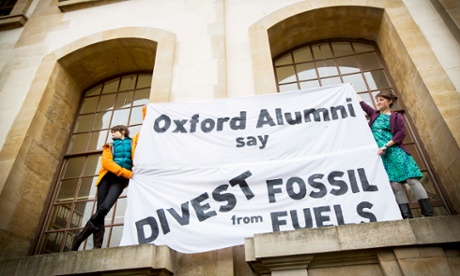Student activists at Cambridge have accused the university of attempting to greenwash its relationship with oil and gas firms by stealing their group’s name for a university project.
Cambridge University is to launch its Cambridge Zero initiative at an event in London next week. The project’s website, which is already live, touts it as a “bold response to the world’s greatest challenge”.
It says that, along with developing greener technology, it will “harness the full power of the university’s research and policy expertise, developing solutions that work for our lives, our society and our economy.”
The project is to be led by Dr Emily Shuckburgh, a climate scientist and mathematician who previously spent 13 years as a researcher with the British Antarctic Survey.
Cambridge Zero’s portfolio of research will include work on zero-carbon energy alternatives, policies, industries, financial processes, transport and climate repair. The university says its 2018 carbon reduction strategy makes it the first university taking science-based steps to achieve “absolute zero” net carbon by 2048.
Cambridge has come under criticism for its links to the oil and gas industry, most recently over a £6m donation from Shell to a laboratory studying methods of hydrocarbon extraction. The university has begun to lobby journalists for positive coverage of the launch.
Critics from the student-led Cambridge Zero Carbon society, who have been campaigning for the university to divest from fossil fuels, say it is a public relations stunt designed to divert attention from continuing links to oil and gas giants.
“Taking our society’s name, which has stood for climate and reparative justice, for the university’s fossil fuel-partnered PR stunt spin initiative in order to give social legitimacy to climate criminals is exceptionally unhinged and morally bankrupt,” a spokesperson for the group said.
Campaigners expressed concern about Shuckburgh’s work on a 2013 project with oil exploration company Schlumberger, and said that Shuckburgh had shared stages at events with oil executives.
Activists also raised concerns over Cambridge Zero’s planned partnership with the BP Institute – a university institute endowed and part-funded by the oil giant BP – to research geo-engineering techniques, including carbon capture.
In a letter to the Guardian after the initial publication of this article, Shuckburgh said she had never given a talk at an event organised by BP. “As a prominent climate scientist, I have been on many panels talking about climate science and there have been occasions on which oil executives have been on the panels too.” This in no way implied a connection with the fossil fuel industry, Shuckburgh’s letter said.
She said that as principal researcher on a 2013 grant provided by the National Environment Research Council she had used data from Schlumberger ship surveys to contribute to work on fuel efficiency and to academic writings. The project was not for Schlumberger, the letter said.
In 2012, 2015 and 2018 she had given climate science talks to masters students at the BP institute, a research institute at Cambridge university.
A joint letter by the EcoNexus and Biofuelwatch advocacy groups accused Cambridge Zero of “Orwellian spin” by describing the work as “climate repair”.
They said: “Geoengineering is a fantasy technology that at best legitimises the ongoing ecocide and genocide perpetuated by fossil fuel companies, and if implemented would have a devastating and unpredictable impacts on ecosystems and human communities around the world.”
A university spokesman said: “Cambridge Zero is the University of Cambridge’s response to calls for action on climate change. It harnesses the research, innovation and policy ideas from more than a thousand academics across the university with a singular focus on decarbonising the modern economy. Dr Emily Shuckburgh is one of the UK’s leading climate scientists with a 25-year academic career dedicated to scientific discovery exclusively related to climate science at Oxford, MIT, Cambridge and the British Antarctic Survey.”
• This article was updated on 24 and 26 November 2019: to include a response provided by Dr Emily Shuckburgh; and to remove unfair implications about her interactions with the fossil fuel industry, for which the Guardian apologises.











